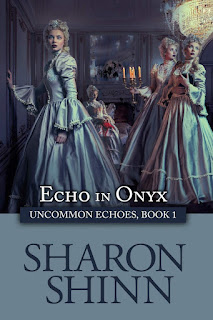 |
| I study Sharon's books for character description. |
But I’ve also used mentor texts for fiction. When I work on fiction, mentor texts are how I study pacing and characterization, setting and dialogue.
Not long ago I used one as a template for pacing a picture book manuscript.
My family was driving cross country when a news story about popular children’s books came on. When the announcer started gushing about one of the titles, my husband knew he was in for a rant. It is one of those books that people love or hate, and I fit into the latter category.
But I didn’t rant about Story X.
Instead, I started noodling over how I would do it better. In just a few minutes, I knew who my characters would be, I had a rough setting, and a feel for the story problem.
When we got home, I popped over to my library and checked Story X out as an e-book. Although I prefer print picture books, this was all I needed to check out the story’s pacing.
In an hour I had roughed out my own story.
But I also saw that the pacing didn’t quite work. I faced two choices. I could change my story to match the pacing of Story X, or I could find something that worked better for my own story.
I had already created my own characters, plot, and setting. My theme was entirely different. Now I was changing the pacing as well.
That’s the key to successfully using a mentor text. You have to see what works for your story and then see what you need to change to make your story work. After all, you aren’t copying the other writer’s work. You are simply using it as a study of how a story can work. Yours is going to be different because, if you do it right, it will be 100% your own.
--SueBE
Sue Bradford Edwards' is the author of over 35 books for young readers. To find out more about her writing, visit her site and blog, One Writer's Journey.
The next session of her new course, Pitching, Querying and Submitting Your Work will begin on December 4, 2022). Coping with rejection is one of the topics she will cover in this course.
Sue is also the instructor for Research: Prepping to Write Nonfiction for Children and Young Adults (next session begins December 4, 2022) and Writing Nonfiction for Children and Young Adults (next session begins December 4, 2022).





2 comments:
Absolutely love mentor texts, Sue! They're an excellent tool for just the reasons you described but I also like to think of them as an immersive experience. If I'm writing a mystery, for example, I'll read a ton of them that are similar to what I'm going for. I feel like the aesthetic seeps into my brain and out again when I start writing. :-)
Cathy,
That is so true! Reading cozies gives you a feel for quirky characters. Read epic fantasy and you'll pick up on how to create a sweeping saga. It's like a master class.
Post a Comment